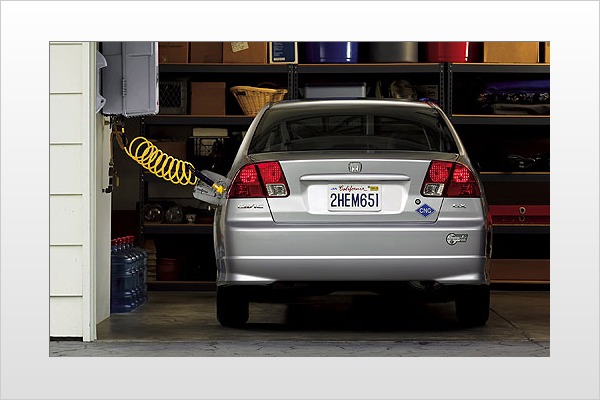
So you're thinking of going green in your garage? According to Good Housekeeping's 2004 "What Women Want" Automotive Satisfaction Study, 82 percent of women think environmentally friendly vehicles are "extremely" or "somewhat important." Drivers of eco-friendly cars enjoy knowing that their low emissions reduce pollution and slow global warming through the reduction of greenhouse gases. But there are plenty of practical reasons to go green, including better mileage, significant tax incentives, free parking at some cities' meters, and access to high-occupancy (carpool) lanes. With one car, you can even avoid the filling station altogether.
Automakers are quickly expanding the definition of a "green car" to include diesel, ethanol, compressed natural gas (CNG), electric and hybrid electric. (For more on this, see "Diesel, Gas or Hybrid?") Biodiesel (made from natural products) and hydrogen fuel cells are also popping up more frequently in the headlines.
In this three-part series, we'll speak with women around the country who are choosing to soften their impact on the environment through three ready-for-prime-time technologies. We'll meet the natural gas-powered Honda Civic GX; discuss fuel economy with owners of the most popular hybrid electric, the Toyota Prius; and see the new generation of clean-burning diesels in the Volkswagen Golf and Jeep Liberty CDI. We'll even talk to a woman who fuels her diesel Golf with soy-based biodiesel fuel. We'll learn the benefits and drawbacks of being early adopters, and see what kind of compromises, big and small, today's generation of eco-cars require on the part of the consumer.
It's a brave new world. Reading what other women think of their choices may help you decide whether you're ready to take the leap. Just follow the links below.
Part One — Going "Au Naturel" with Honda's Civic GXPart Two — The Prius Number CrunchersPart Three — Diesel's Greener Bill of Health